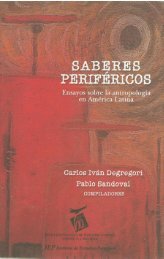blueprints
blueprints
blueprints
Create successful ePaper yourself
Turn your PDF publications into a flip-book with our unique Google optimized e-Paper software.
About River of Words | 89<br />
(think the Narmada Dam in India, Three Gorges in China) displaced from<br />
their indigenous cultural and economic lives by the floodwaters. In response<br />
he had created International Rivers, a small crew of activists, hydrologists,<br />
and financial analysts, to provide real-world support to local peoples whose<br />
lives were threatened by big dam projects. International Rivers, I came to<br />
see when I read about it, had situated itself at exactly the place in the world<br />
where issues of social justice and environmental health were most deeply<br />
intertwined.<br />
The university had given me a small grant of a couple of thousand dollars—as<br />
a reward, I suppose, for the honor accrued to them by my appointment<br />
as poet laureate. (My children, a month into the job, had begun to call<br />
me the poet laundromat). I used it to hire a graduate student at the university<br />
to help me with the correspondence that was piling up and to keep<br />
track of my schedule. Natalie Gerber was from New Jersey, new to California;<br />
before coming to graduate school, she had worked for the Geraldine R.<br />
Dodge Foundation, helping to organize their huge, biannual poetry festivals<br />
in Waterloo, New Jersey, events that drew thousands of people and, through<br />
the inventive PBS films that had been made at the festivals and broadcast<br />
nationally, a television audience in the millions. I didn’t know this about<br />
Natalie at the time, or I had not taken it in. I had mainly noticed that she<br />
was cheerful and intelligent. I asked her to come with me to the meeting<br />
with Poetry Flash and International Rivers.<br />
The original object of the meeting had been to get help with fundraising,<br />
but with the funds in place, there were other concerns. One was<br />
how, if the thing was actually going to happen, to get the environmental<br />
community involved. And the other—more troubling—was that after a<br />
couple of months in Washington, certain things had become obvious to me.<br />
One was that the main industry there was lobbying. Another was that, as a<br />
result, the local media, in fact the local culture, was profoundly cynical. I<br />
was riding weekly from San Francisco to Washington, DC, in the economy<br />
sections of airplanes filled with guys—mostly guys—dressed in dark blue<br />
suits, black shoes (gleaming), white shirts and red power ties, hair slicked<br />
back and laptops on their tray tables, pounding away at arguments for why<br />
the refrigeration industry should still be allowed to emit the chlorofluorocarbons<br />
that were eating a hole in the ozone, why the protection of wetlands<br />
and vernal pool protection were obstructions to a construction industry<br />
of exquisite environmental sensitivity, and why unnecessary worries<br />
about maritime environments had been solved by practically fail-safe, deep-







